PT Hirschfeld lives to dive another day after a harrowing experience
Dive 1531 (19 March, 2022) brought me closer to death than anything else in my life. It’s a dramatic story with lots of lessons learned, and writing about it here is helping me to process the enormity of what did and didn’t happen.
This year I’ve been spending a lot of time exploring Australian waters that are new to me. I reached out to someone whose underwater photos I’d seen on Facebook. After meeting in person, I was invited to join a dive adventure on his private 40 ft catamaran which he had owned for the past year and a half.
I told the owner captain that I was a writer for scuba magazines and he said ‘Great! Maybe you can write an article to help me to find new crew members.’ The crew onboard the boat when I embarked consisted of the captain and three novice divers whom I’ll call Adam, Teddy and Adam’s girlfriend Amy.
I awoke after the first night on the boat to the captain in the galley kitchen, looking at a weather app on his phone and shaking his head. ’Conditions look much worse today than predicted last night.’ ‘So no diving today?’ I asked. ‘No other boats will be leaving this marina today. Everyone else would think I was crazy for going out.’
‘So dives are cancelled today then?’ I enquired again. ‘I think we can get out to the dive spot early, then head back before it turns too feral’, he answered. As someone unfamiliar with the waters of this region, it didn’t cross my mind to challenge his judgement as we made the 1.5 hr boat journey out to the site.
When we reached the site, the captain elected to stay on the boat with Teddy, instructing Adam (with 40 dives) how to navigate his girlfriend Amy (with 30 dives) and myself through the dive site and where it would be safest to surface under the prevailing conditions.
I was not privy to the dive briefing nor the fact that Adam (who had only dived the site twice before) was distracted by not being able to find his hood and wasn’t paying adequate attention to the instructions being given.
As we began our descent, it became apparent that Amy’s tank was slipping loose from her BCD. After Adam tried unsuccessfully to secure the tank at the relatively calm surface, Amy aborted the dive and swam back to the boat. That loose tank probably saved her life.
I continued the dive with Adam. He seemed a competent diver, apart from his dive profile repeatedly going deep (maximum 23 metres) then shallow then deep again, creating potential risks for equalisation and nitrogen levels. (After the dive, his computer dive profile graph showed at least eight red marks, indicating where he had violated best practice rather than starting deep then slowly levelling up).
The dive itself was pleasant and mostly uneventful. Lots of fish and wobbegong sharks punctuated the increasing surge. An enormous numb ray slept on the sandy substrate. Adam indicated that it was time for us to commence our safety stop so I clipped my camera to my bcd and slowly began to ascend. I started to feel a mild reverse block in my left ear, so I descended slowly until it resolved before rejoining Adam on the stop.
We completed the three minute safety stop at four metres without incident, not far from the rocky point where Adam had planted the marker buoy he’d been towing for later retrieval by the boat. Leaving the marker there seemed odd to me, but I assumed it was part of some pre-arranged protocol between Adam and the captain.
Upon surfacing from the 72 minute dive, we were met with pounding three metre waves, dangerously close to the rocks, making it impossible for the 40 foot catamaran to retrieve us. We lay on our backs and kicked as hard as we could away from the rocks, making little to no progress against the powerful waves forcing us repeatedly back towards the rocky point.
I could only occasionally see the boat through the towering waves as the captain made several attempts to manoeuvre it close enough to attempt a rescue without getting too close to the exposed rocks. Adam caught the smooth white rope Teddy threw to him and was towed then pulled in to safety, leaving me bobbing alone on the violent surface.
The boat circled into position and the rope was thrown to me three times over twenty minutes. Each time it escaped my gloved hands like teflon. ‘Grab onto the rope!’ Teddy yelled to me over the waves. ‘It keeps slipping through my hands’ I screamed.
In disbelief, I heard Teddy call back to the captain ‘She doesn’t want the rope!’ and I corrected him at the top of my lungs, ‘It keeps slipping away!’ I put my reg back into my mouth as the next thunderous wave pounded over me. Thank God I had surfaced with half a tank of air. I knew it might be hours before the water would calm enough for them to be able to collect me if the smooth white rope failed me again.
I knew I couldn’t wrap the rope around my hand, having read articles about people having hands amputated by ropes during games of Tug of War. I finally managed to grab and maintain hold of the rope with both hands the fourth time, as now the crew had tied knots into it to prevent it escaping my grasp.
I was towed through the relentless wall of waves further from the rocks and towards the relative safety of the boat. ‘Just hold on tight,’ I told myself as waves smashed my face and crashed over my head, knowing full well that panic is a primary cause of diver death. Staying calm would increase my chances of getting out of this dangerous water.
Then without warning I was UNDER the catamaran, its massive bow rising ten metres above the raging sea, while the solid stern crashed down less than a handspan from my face. ‘I’m going to die now,’ I realised with absolute certainty, waiting for the boat to crack my skull or send me unconscious to the ocean floor. Despite my instinct to raise my arm to cover my head, I tightened my desperate grasp on the rope.
Somehow I was either dragged by rope from above or propelled by surge below or both, out from beneath the backend of the boat. I found myself clutching a wildly flailing, narrow ladder as it threatened to smash, crush or sever whatever part of my body was closest to it at any given moment.
There was no way I could climb the ladder with fins on or remove my own fins. I raised my right foot above the surface and yelled to Adam, ‘Get my fin off!’ He removed the fin and I managed to put my foot on the ladder’s bottom rung. Exhausted and with a 13 litre aluminium tank on my back, I was still being pummelled by ferocious waves. ‘You need to pull me up!’ I didn’t consider dropping my weights to make their task easier; I would have had to let go of the ladder to do that.
Somehow Adam and Teddy dragged me up onto the first and second step of the boat and I face-planted on my belly, pinned down by the tank and weights. The boat was still rocking like a demented see-saw. When it tipped again I would surely slide right back into the violent waves with no strength or strategy to survive another rescue attempt.
‘I’m going to die,’ I told my unseen rescuers over and over, with no other way to communicate that my life was still very much in their hands. ‘No, we’ve got you’ they promised as they unclipped my camera and dumped it face down on the deck. ‘Move up onto the next step!’ they urged me. ‘I can’t move’, I either yelled or whispered, utterly spent. ‘Take the tank off my back. Do not drop it on me.’
They removed the tank and I begged them to keep dragging me up, still in imminent danger of toppling back down into the raging sea. ‘Don’t let her fall asleep!’ I heard Teddy tell Adam. Somehow I inched my way onto the next step, then slumped onto the deck. I vomited while the captain berated Adam for losing the marker buoy and not following his instructions about where to double back away from the rock point to end the dive. ‘I didn’t listen properly’, the novice diver confessed.
Adam had dived that site and dive path twice before. But he was too inexperienced to understand that the old dive plan could be deadly under the treacherous new conditions that had developed on the surface. I sat on the lounge behind the captain with my eyes closed and my head in the spew bucket for the two and a half hours it took us to battle the monstrous sea back to the marina. I was beyond thankful to be uninjured, but my camera port now had a deep scratch across it, rendering it unusable without time consuming repairs.
That night as we ate ramen and played Monopoly Deal as though denying our collective state of shock, our conversation kept reverting to round-table debrief of the near-deadly dive. ‘Well, thanks everyone for saving my life today’ I told the three men at the table. ‘I had to,’ the captain replied, ‘They would have come after me if I didn’t. I’d be in court with years of paperwork.’ This genuinely seemed his primary concern.
I asked why they hadn’t thrown me the round life buoy that remained firmly in place on the back of the boat. ‘There’s no rope attached to it’, the captain replied, but I suspect tossing me the life ring hadn’t even been considered in the frenzied chaos of the rescue.
‘You could have descended when you saw how bad the surface was,’ the captain suggested,‘Then ascended again further from the rocks to make it easier for us to reach you.’ Maybe so. And maybe such a move would have compounded the life-threatening challenges. Or created new ones.
‘Or you could have just swum further away from the rocks during your safety stop?’ On our ascent we’d had little to no indication of how dangerously the surface had changed since we had entered the water. Sure it looked a bit lumpier from below than when we had got in, but the safety stop felt perfectly calm. Neither Adam nor I had felt any cause for alarm until after we had broken the surface. A moving safety stop away from the rocky point could well have made our return to the boat a significantly safer proposition.
Adam fully owned that he needed to pay more attention to dive briefings, particularly when he was leading the dive. And I would insist in future on being given a comprehensive dive briefing, not just blindly playing ‘follow the leader’ with any nominated dive guide, novice or otherwise.
I also vowed to be more proactive in the future, challenging any captain who would press forward with a dive in the face of such dire predictions. I asked the captain point-blank if he would have cancelled the dive in retrospect rather than rolling the dice to see if the site was diveable, given the accuracy of the predictions. ‘Well, you got to dive the site! It’s a difficult one that’s very rarely able to be dived. I got you there and you did it!’ he replied.
‘Yeah,’ I replied ‘But if I had died or been injured, who would you have called? You never even asked me for close contact information?’ ‘Maybe I should have asked you to sign some sort of waiver before I let you onboard?’ the captain replied.
He asked if I had taken any good photos during the dive to go with the article I had been intending to write. ‘You don’t seriously want me to tell this story, do you?’ I questioned, gobsmacked. He shrugged and replied, ‘Sure. Why not?’ The captain instructed Amy to lift the lid on the storage chair she was sitting on and to take out the back-up dive marker float that replicated the one Adam had left behind at the rocky point. ‘Start taking some photos of this,’ he told Adam. ‘This is what you owe me.’
Granted, the catamaran is a private boat which is dived by personal invitation only. No fees are charged in exchange for the adventure. On the surface, the captain’s dream to own a magnificent boat and to share the diving and workload free of charge with hand-chosen dive buddies-come-crew members is a generous and romantic one. But even as a private arrangement rather than a commercial one, there is critical need for best practice and safety protocols to prevent minor and catastrophic problems unfolding.
Each diver’s gear just tended to float around the boat without having a specific place to ‘live’; I had almost lost my life due to my dive buddy’s lack of focus on the dive plan specifics as he stressed about being unable to locate his hood. Assembled gear was never secured. Tanks with BCDs attached were strewn around the flat, open dive deck, providing potential tripping and crushing hazards. Regulators and occys snaked across the deck and could easily be stood on and damaged.
I once asked the captain if he wanted me to lie a tank left standing on the deck down somewhere so it didn’t fall. ‘Well it hasn’t fallen yet’, he replied, dismissing my concern. Even on dry land, a tank left standing by a first time diver would be considered a dangerous oversight. No buddy checks were conducted to my knowledge. Lack of attention to basic safety procedures and duty of care were beyond alarming.
We moored overnight in the marina and planned to do a group dive close to shore the following morning. Having been vilely seasick following the rescue ordeal, I took one of my tried and true compounded seasick capsules before going to bed. I took another the next morning an hour before we were planning to dive. This had worked well for me in the past, and I had recommended this particular brand of compounded motion sickness tablets to other divers many times.
The hours that followed are a blur. I remember the captain jumping into the water to see if it was diveable, then declaring that the current was horrendous and that vis was non-existent. ‘So we’re not diving then?’ I tried to ask, but the words felt like rocks with jagged edges, trapped behind numb, rubbery lips.
Frightened and confused, I tried again but couldn’t translate my question into any sort of sentence, and I couldn’t understand what anyone was saying to me. Every cell in my mouth was so dry it was painful. I was utterly disoriented. Staring wide-eyed and glazed at my dive gear; apparently I said ‘My head is out there somewhere … I don’t know how to do this …’
Everyone looked at me strangely and the captain who was still in the water declared ‘Nope, you’re not getting in’. ‘I’m not diving,’ I responded like a zombie, then stumbled to my cabin. My left hand and wrist were completely numb half-way to my elbow.
I drifted between long, heavy sleep and brazen hallucinations of the captain’s bare buttocks as he changed his bathers on a pontoon, fully exposed to a cafe of latte-drinking women in their billowy summer hats. (Days later I realised we were never moored near any cafe.) To my knowledge nobody checked in on me.
It was afternoon when I heard someone call ‘Come quick. Dolphins!’ and I stumbled from my room to the bow to join all the others for the brief sighting. The captain and Teddy mentioned something about the dive they had done. ‘You dived today?’ I asked ‘When? I had no idea.’ ‘This morning,’ they replied, ‘when you couldn’t dive.’ ‘You seemed stoned’, the captain scolded me, ‘And that’s not good.’
I explained that I have never been stoned in my life, but there had been two prior occasions where I had taken sea sickness medication that had left me feeling strange: lightheaded and ‘not quite there’. ‘It must have been the tablets,’ I told my shipmates as they all disappeared from the bow, leaving me to ponder the ripples of the surface alone.
When I’d boarded the boat two nights before, the timeframe of the invitation was open. I could stay on for the weekend or extend for another week. But having been badly seasick for the first time in many years, coupled with the serious side-effects of a medication I could no longer trust, a camera I could no longer use and lingering concerns about safety protocols aboard the catamaran, I chose to disembark the day after the harrowing dive which very easily could have been my last.
Still groggy, I packed my bags hastily and left the boat just after 4pm, passing the captain on the deck. He held the back-up dive marker in his hands, intently focussed on itemising every component, cost and supplier of the lost dive marker that Adam was now obligated to replace: ‘This float … this reel … this swivel … this blind cord …’ and so on, while Adam took photos and notes.
I feared what future catastrophes might unfold for this boat and crew when such tiny details were the primary focus in the absence of the most basic safety protocols. Not once had the captain asked if I was ok after all that had happened since the dramatic rescue the day before. And while I had survived the dive and seemed largely unperturbed, I was not ok, floating from one moment to the next in a fog of shock and unprecedented sea-sick medicine side-effects.
Adrenaline kicked in as I drove four hours back to home base without rest breaks, then played Wordle Unlimited until after 1am. I couldn’t shut my racing brain off for the night. The next day I felt as though everything was in slow motion. I couldn’t make simple decisions. My mind looped constantly back to the moment I was absolutely certain would be my last, the enormous stern of the catamaran smashing through violent water, narrowly but miraculously avoiding my skull.
I started to feel deep aches in both of my upper arms from having held on for dear life to the rope that had kept slipping from my hands. I pulled a muscle or pinched a nerve near my left ribs while picking up a bath towel.
Or maybe I’d acquired that small injury during the rescue, but the shock of the ordeal was only starting to wear off enough now for me to notice it. My partner wondered whether the adrenaline from the nightmare dive rescue may have made me susceptible to side effects of the seasickness medication I’d never experienced before.
I phoned the compounding pharmacy that had supplied the capsules. They confirmed that all of my symptoms – dry mouth, drowsiness, disorientation, difficulty speaking, hallucinations and so on – were indeed associated with the active ingredient called Scopolamine. They suggested that the tablets taken days earlier were still affecting my system and that I should reconsider coupling this medication with diving in future, given that I’d had such an adverse raft of side effects.
I forwarded this information to the captain, thanking him for the opportunity to dive from his boat and explaining how I’d been affected by the sea sickness medication, but I received no reply.
There is still much for me to process and many questions left unanswered, but I am grateful to have survived Dive 1531. Thankfully I live to dive another day.
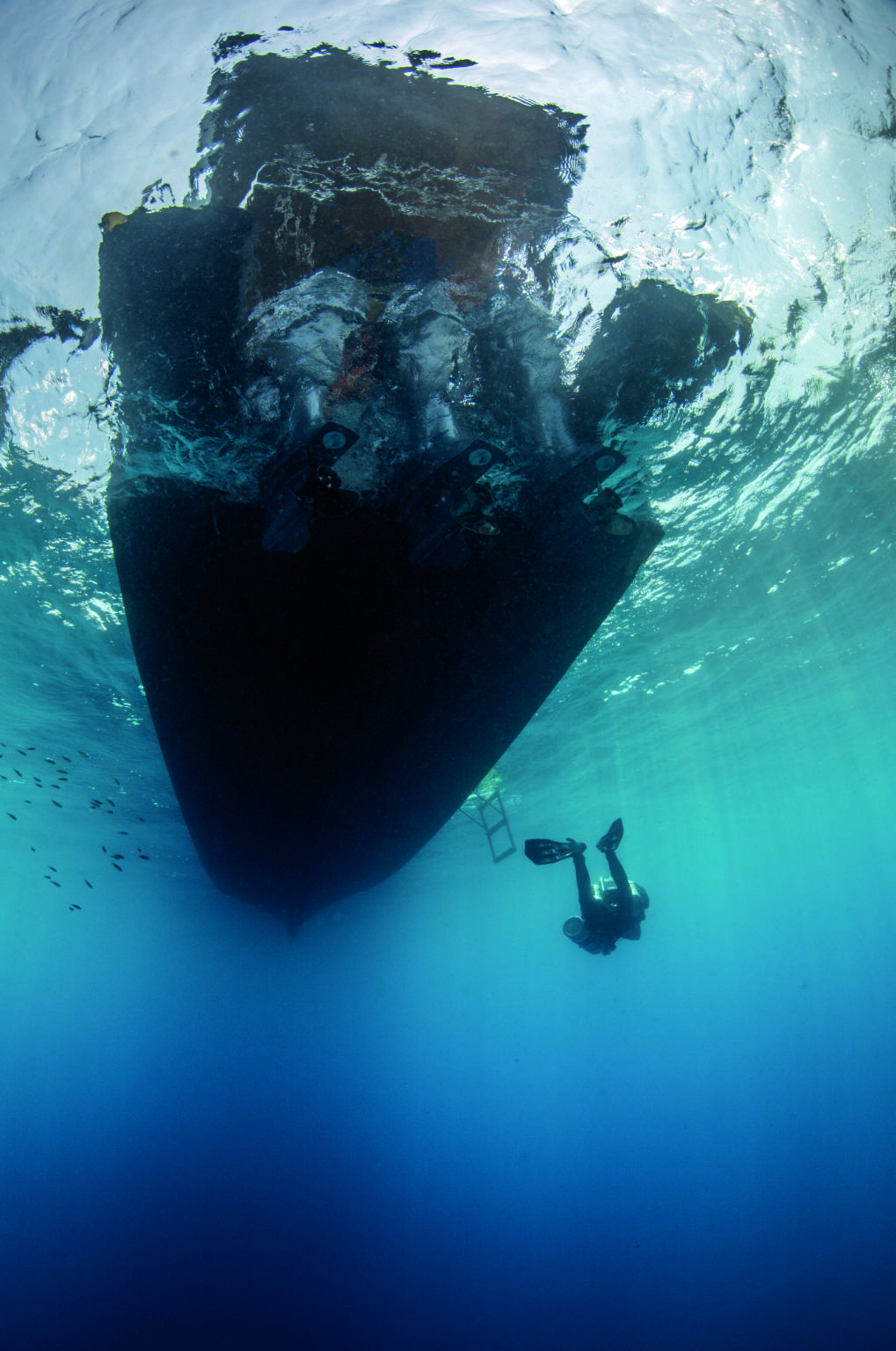


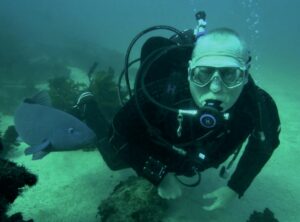
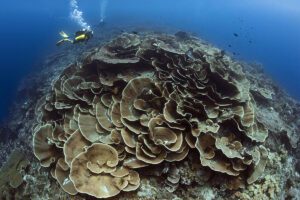
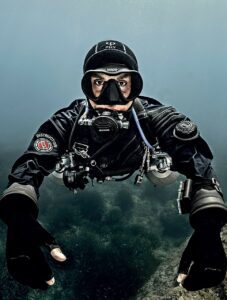
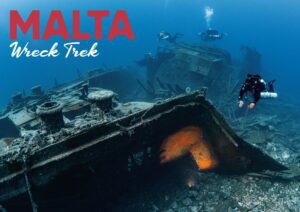
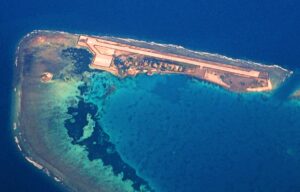
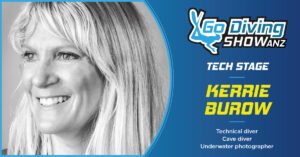
Sounds like she is blaming everyone else for her mistakes:
1) She chose to do a dive that she had reservations about in the first place.
2) She didn’t get a dive brief and didn’t speak up and ask for one.
3) She was letting someone lead the dive that was way more inexperienced than her with only 40 dives.
4) She took a mind altering medication that she didn’t fully understand.
5) She didn’t speak up and ask for a buddy check.
6) She didn’t speak up after the dive when she was feeling I’ll and expected others to check up on her.
Other parts of the story sound sketchy as well.
-How can you spend 3 minutes at 4 meters and not know that there are 3 meter waves above your head?
-Why surface in 4 meters of water near rocks when you know a large vessel with slow maneuvering capabilities is going to pick you up?
-Was she not carrying her own SMB and thus decided not to dive under into the reportedly calm water to swim away from the rocks?
1530 dives and she couldn’t make simple decisions to help her own rescue.
Thank goodness you are alive to tell the tale! I felt like I was reliving every moment with you through the story!
I’ve had a milder experience of something similar. We’ve dived in the Maldives many times but one year we decided to try a new resort, which unfortunately lied to us about having a dive centre or rather a functioning one! They ended up bringing in a local dive guide who we had no idea if he was even experienced. In hindsight we should have just demanded a refund and moved resorts.
We were taken out on a normal speed boat not equipped for diving and when back on the surface after losing our guide several times, a rope was thrown at me as the current was impossible to swim against. They pulled me in so hard I ended up smashing straight into the engine and ended up with my leg caught under the propeller (it was tunred off of course). They tried to pull me onto the boat as I screamed for them to stop! Cut a long story short, my leg remained the shade of purple for the rest of the trip and we didn’t get back in the water with the said guide again!